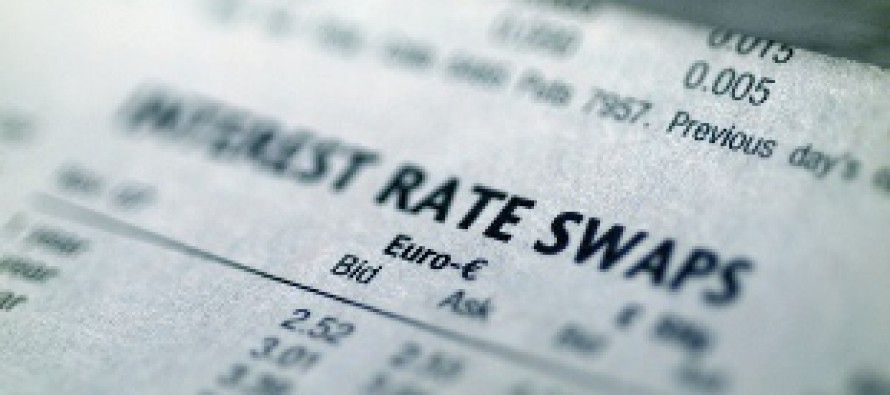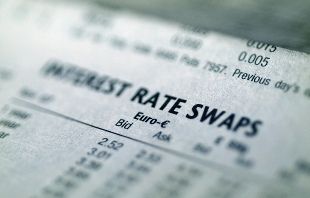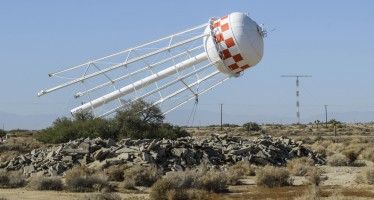After gamble backfires, L.A. demands refund from banks

 In the San Francisco Bay area, public transit riders are paying $104 million in higher rider fees to cover the cost of exotic financial insurance known as an interest rate swap. In Detroit, the inability of the city to make interest rate swap payments signaled eventual bankruptcy. So the recent news that the city of Los Angeles wants out of its 2008 interest rate swap insurance contract on a sewer revenue bond is causing concern on Wall Street and beyond.
In the San Francisco Bay area, public transit riders are paying $104 million in higher rider fees to cover the cost of exotic financial insurance known as an interest rate swap. In Detroit, the inability of the city to make interest rate swap payments signaled eventual bankruptcy. So the recent news that the city of Los Angeles wants out of its 2008 interest rate swap insurance contract on a sewer revenue bond is causing concern on Wall Street and beyond.
On Aug. 12, the Los Angeles City Council threatened to stop all business with the Bank of New York Mellon (BNY) and Dexia Bank unless they paid back payments on insurance the city bought. What the city bought was insurance against risk of loss on $281 million municipal wastewater system revenue bonds.
But the city didn’t buy conventional insurance coverage. Instead, officials bought an interest rate swap that provides insurance against loss — as well as the prospect of reaping a big financial gain if interest rates rose significantly. Since the city might have defaulted on the sewer revenue bond if it filed for bankruptcy in the future, the financial insurance would guarantee payment to bondholders and possibly could reap the city a big windfall if interest rates rose.
This swap was more of a calculated gamble by L.A. officials than a predatory banking practice. It is similar to a participating whole life insurance policy where the policyholder shares in any excess profits called dividends. When the sewer bond was issued in 2008, the mortgage meltdown drove up interest rates on municipal bonds. By using a swap, L.A. significantly lowered borrowing costs — by $21.7 million according to the city administrator.
Balks turn down L.A.’s demand
Unsurprisingly, the banks rebuffed the L.A. City Council’s demand. Neither bank was willing to refund past insurance payments because it would mean the other party involved in the swap would have to take a loss. They understood that the city’s request was akin to an individual asking his insurance company to refund his medical, auto or homeowner’s liability insurance payments because he had filed no claims since 2008.
Yet this perspective didn’t occur to any of the 14 L.A. council members who voted unanimously to request that BNY Mellon and Dexia return $65 million in so-called “unfair profits and fees” paid since 2008 on a $151 million interest rate swap on a sewer revenue bond.
Nor did they anticipate the reaction in financial circles. Some analysts believed that by asking for a refund, the city is signaling it can no longer afford to make the interest payments on the swap that included the sewer bond. The Wall Street Journal and many others saw this as a forewarning of municipal bankruptcy.
But the maneuver played well with those eager for a chance to beat up on big banks. Los Angeles public labor unions accused BNY Mellon and Dexia of “gouging L.A. taxpayers” with “predatory” high-risk deals and supported withholding future business if the banks didn’t refund the sewer bond interest rate swap payments.
How a swap works — and how L.A. hoped to profit
To understand this controversy, it’s important to understand what an interest rate swap is. Let’s assume two people want to swap apples for oranges. If apples cost $1 each and oranges 50 cents each, then a fair trade is to trade one apple for two oranges and vice versa. This is the simple basis of a swap.
But if tomorrow the price of oranges goes up to 60 cents, the person receiving the oranges would get $1.20 in value and can reap a 20 cent windfall. In financial terminology, this is called arbitrage, where one can make more from a trade or from house flipping (“buy low, sell high”).
But instead of a deal where one person wins 20 cents and the other loses out, if both persons agree to negotiate for a share of the 20 cents in higher value, then it becomes a win-win deal, because they also can both lower any costs of borrowing for the transaction.
Such hedging against loss by both parties in a trade when prices go up or down is what drives interest rate swaps. So it is strange that Los Angeles officials would accuse Wall Street banks of greed when greed is part of the city’s motive for doing an interest rate swap.
Like an underwater mortgage
The sewer bond swap had a negative fair value of $24.7 million as of June 2013, according to city documents. A negative value interest rate swap contract is like an “underwater mortgage” where there is more mortgage owed on a property than what it could be sold for. This is a result of the Federal Reserve’s Zero Interest Rate Policy, which has made borrowing money more attractive at almost no interest than in 2008 during the financial crisis.
The deal isn’t a complete disaster for the city. As noted above, it lowered borrowing costs by $21.7 million. And the sewer bond insurance swap contract has until 2028 before it expires. If the Federal Reserve significantly raises interest rates during that period, the city’s gamble could yet pay off.
Yet instead of explaining that the city’s sewer bond insurance swap amounted to speculating with public funds, Los Angeles officials are counting on financial illiteracy among the public and the media to sell a dishonest narrative about predatory banks.
If interest rates go up sharply — as some fear because of huge pending government deficits — it’s doubtful that the city of Los Angeles would refund any of its windfall to banks because it doesn’t want to look “greedy.”
Related Articles
Pravda laughs at American global warming hysteria
Jan. 6, 2012 By Katy Grimes Imagine my surprise when I found an article in Pravda mocking Western academics, scientists,
SoCal water reserves could dry up in 2016
The nearby photo shows the recent demolition of a 160-foot water tank tower at Edwards Air Force Base northeast of Lancaster. Could it
Another Obamacare exemption revealed
June 29, 2013 By Katy Grimes In February, the Treasury Department’s summary was released announcing who won’t have to pay a fine if they



